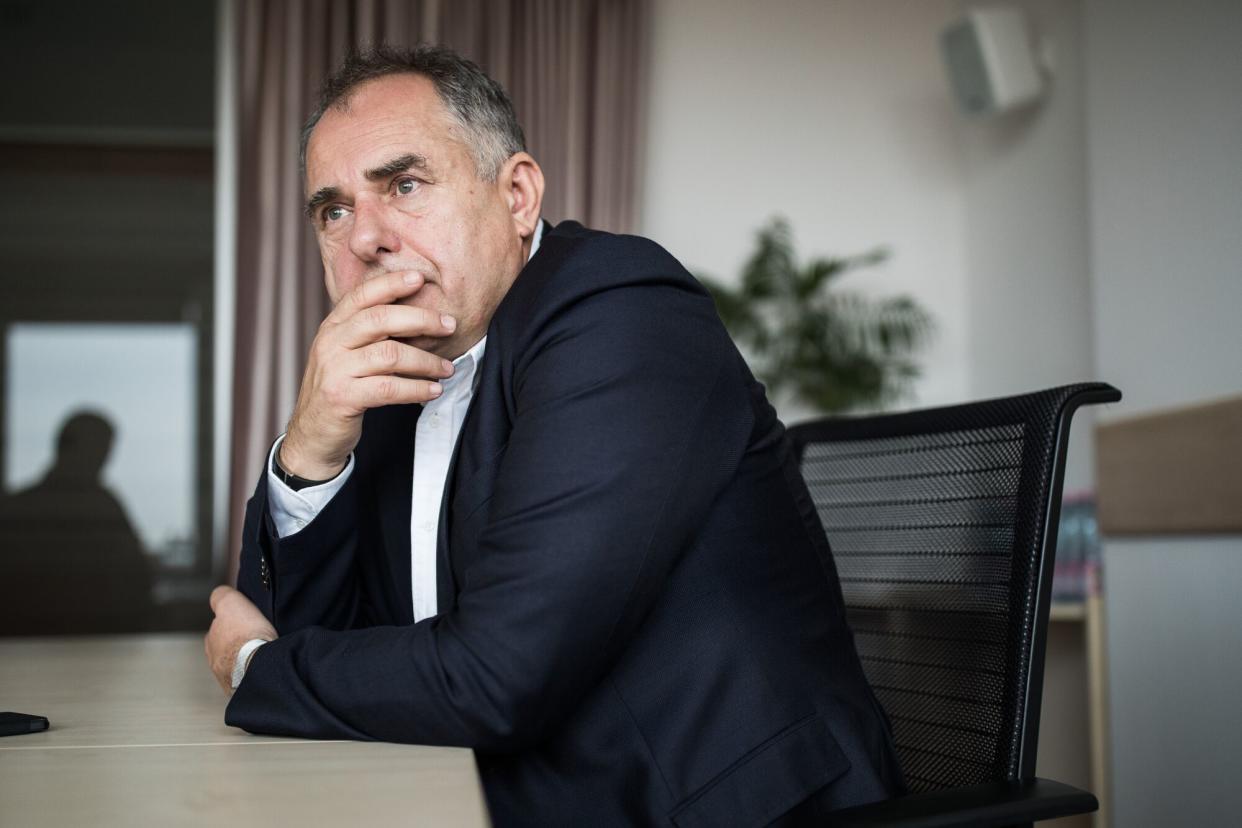Orban Critic Sees Independent Media Group Across Central Europe

(Bloomberg) -- A Hungarian entrepreneur critical of Viktor Orban said a new pro-European government in nearby Poland is already bringing change to the country’s media landscape.
Most Read from Bloomberg
SEC Says FBI Is Investigating Compromise of Agency’s X Account
Boeing CEO Fights Back Tears and Admits ‘Our Mistake’ in 737 Address
Bitcoin Near $46,000 After ETF Approval Decision: Markets Wrap
Zoltan Varga bought a minority stake in the publisher of influential Polish newspaper Rzeczpospolita in September. The announcement just over a month before a crucial election risked entangling Varga in Poland’s heated election campaign.
But after the nationalist Law & Justice party lost its majority in the Oct. 15 contest, the tide turned quickly for the independent Polish broadsheet, which suffered from declining advertising revenue from state-owned companies.
Varga said his company was contacted the day after the vote by a state firm saying “we are happy to work again,” he told Bloomberg in an interview late last year.
“It was a kind of risk announcing the deal just before the election, but it turned out to be a good decision,” Varga said.
The purchase seeks to extend Varga’s reach in central Europe, where the investor has ambitions to consolidate his holdings into a unified independent media project over the next three to five years, he said.
The entrepreneur’s Central Media Group, one of the few independent media groups remaining in Hungary, runs more than 25 print publications as well as 19 online outlets that reach more than half of Hungary’s population of 10 million every month, according to the company.
Tusk’s Rocky Start
Varga said his longer-term ambition is to gain a stronger foothold in Poland as well as the Czech Republic and Slovakia. Rzeczpospolita, a daily covering business and politics, gained a reputation for remaining above the political fray as Law & Justice tightened its grip over independent media in its eight years in power.
The newspaper’s publisher, Gremi Media SA, fell victim to those efforts as it was mostly cut off from state advertisement, Varga said. He purchased a 13.4% stake in Gremi from Amsterdam-based Pluralis BV, which invests in media companies with the backing of pro-democracy funds.
Polish Prime Minister Donald Tusk’s bid to overhaul state-owned media after he took office Dec. 13 has gotten off to a rocky start. A decision to reshuffle the management ranks of public broadcasters triggered a series of sit-ins by Law & Justice officials who decried the move as an attack on media.
Tusk’s cabinet late last month placed public television, radio and print media — Telewizja Polska SA, Polskie Radio SA and news agency Polska Agencja Prasowa SA — under liquidation in response to a veto by President Andrzej Duda, a Law & Justice appointee.
‘We have less hope’
Varga said he’s committed to a central European expansion, adding that he’s eyeing a number of titles across the region, without disclosing specifics. He pointed to Slovakia, where newly re-elected Prime Minister Robert Fico has threatened to dismantle independent institutions, as an opportunity.
“If we can build positions in these countries, that would be a natural step from our side,” Varga said.
But the objective of a central European group has presented the challenge of stitching together a media presence across a region fragmented by political differences, national interests and varying degrees of trust in an outside buyer, he said. Much depends on streamlining distribution.
“Buying media depends not only on money,” Varga said, drawing a pointed distinction between Hungary and Poland. Despite Law & Justice’s effort to consolidate power, Poland’s election campaign showed that an open debate was alive, he said.
Orban, on the other hand, has a much tighter grip, one that will only increase in the coming months ahead of the European Parliament election.
“The difference compared to Poland, I think we have less hope — in Hungary there’s no debate at all,” he said. “There is no Tusk, unfortunately.”
Most Read from Bloomberg Businessweek
Trumponomics 2.0: What to Expect If Trump Wins the 2024 Election
Tropical Underworld: The Murder Case That Could Topple an Alleged Crime Empire
US Is Weaponizing New Economic Tools to Slow China’s War Machine
©2024 Bloomberg L.P.

 Yahoo News
Yahoo News 

